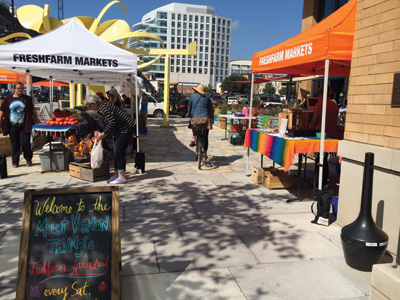Erin Christensen Ishizaki
Associate Principal, Mithun
Seattle, Washington
- What inspires me most is getting to know a community’s unique DNA: climate, identity, culture, and place. Design with health and quality of life in mind is the ultimate in responsive, user-focused design. To me, innovations through evidence-based design are an exciting way to provide new choices and living environments that have a multitude of benefits—resilience, equity, human connections, and well-being.
